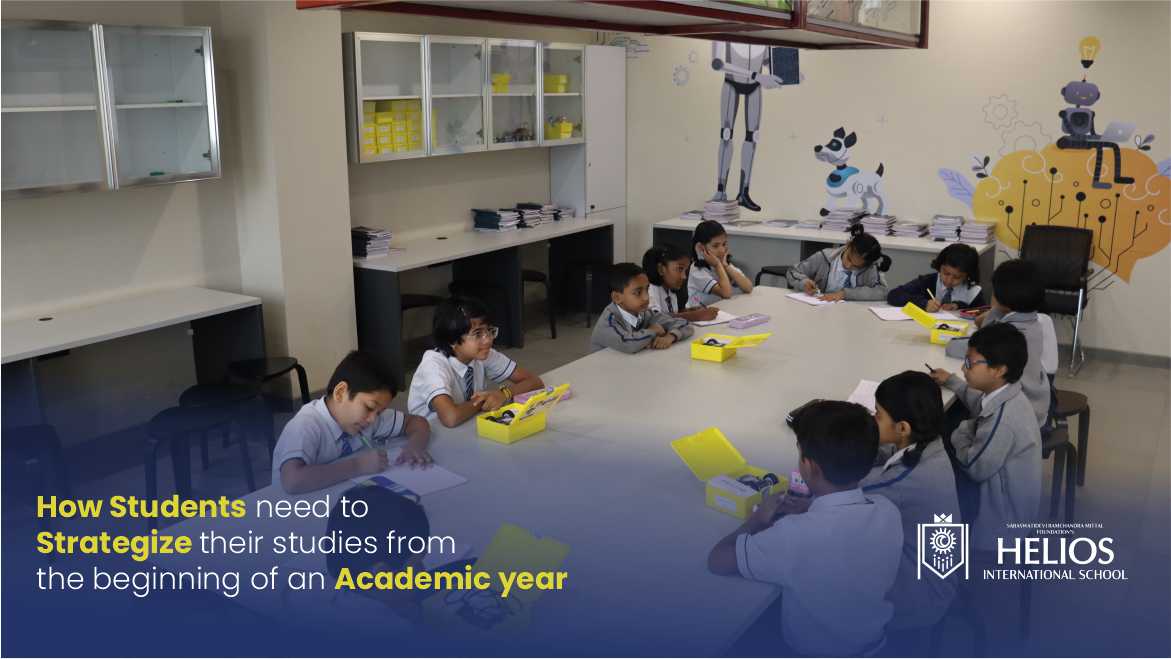The beginning of an academic year is a fresh opportunity for students to set a solid foundation for success. Effective study strategies can significantly impact performance and reduce stress.
Here are some key approaches to help students make the most of their academic journey.
1. Set Clear Goals:
Setting specific, achievable goals is crucial. Start by identifying what you want to accomplish by the end of the year. Goals can be academic, such as achieving a certain grade, or personal, like improving time management. Having clear objectives provides motivation and direction, helping you focus on what truly matters.
2. Create a Study Schedule:
A well-structured study schedule is essential. Begin by mapping out your daily and weekly commitments, including classes, extracurricular activities, and leisure time. Allocate time slots for each subject. Consistency is key—sticking to your schedule helps reinforce good habits and prevents last-minute cramming.
3. Prioritize Subjects:
Not all subjects may require the same amount of effort. Identify which subjects are more challenging and allocate additional study time to them. This prioritization ensures that you dedicate adequate time to areas where you need improvement while maintaining a balanced workload.
4. Use Effective Study Techniques:
Incorporate diverse study methods to enhance retention and understanding. Techniques like active recall, where you test yourself on key concepts, and spaced repetition, which involves reviewing material at intervals, can boost memory. Visual aids such as mind maps and flashcards can also help in organizing information creatively.
5. Stay Organized:
Organisation is a critical component of academic success. Keep your study space tidy and ensure that all your materials are easily accessible. Utilize tools like planners or digital apps to keep track of assignments, deadlines, and exams. Staying organised minimises stress and allows for more efficient study sessions.
6. Take Care of Your Well-being:
Maintaining physical and mental health is vital. Eat well, sleep on time, and exercise often. Taking breaks during study sessions helps refresh your mind, improving concentration and productivity. Incorporating mindfulness practices like meditation can also help reduce stress and enhance focus.
7. Seek Help When Needed:
Don’t hesitate to seek assistance if you encounter difficulties. Engage with teachers, classmates, or tutors to clarify doubts or explore complex topics. Study groups can also be beneficial, as they provide a platform for discussion and collaborative learning.
8. Reflect and Adjust:
Regularly evaluate your study strategies to determine what’s working and what isn’t. Reflection allows you to identify areas for improvement and make necessary adjustments. Being adaptable is crucial—if a particular method isn’t effective, don’t be afraid to try something new.
Conclusion:
Strategizing your studies from the beginning of the academic year can lead to significant benefits. By setting clear goals, maintaining a consistent study schedule, prioritizing subjects, and using effective techniques, students can enhance their academic performance.
Remember, staying organized and prioritizing well-being are just as important as academic efforts. With these strategies in place, students can navigate the academic year with confidence and success.


